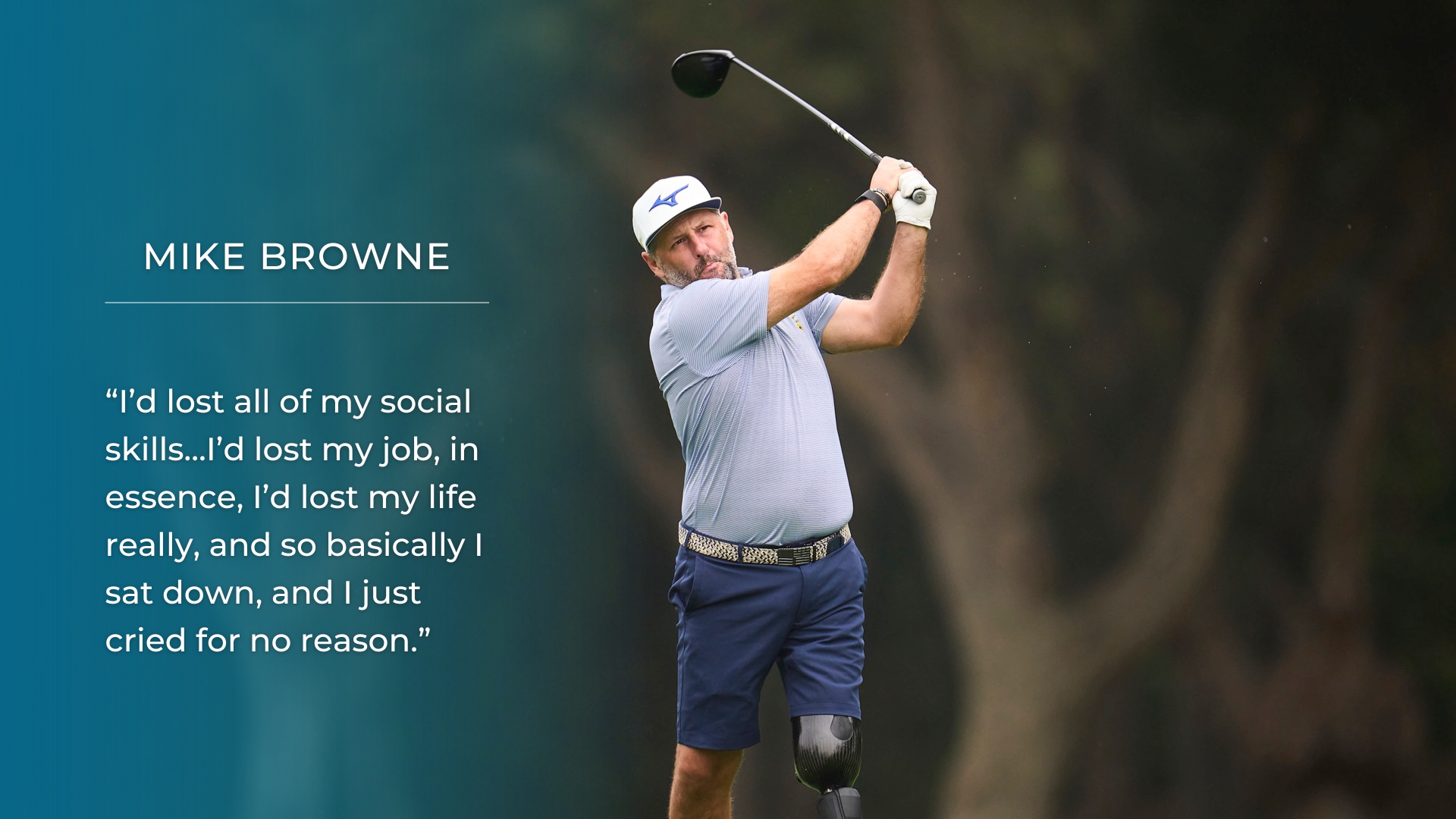Audio:
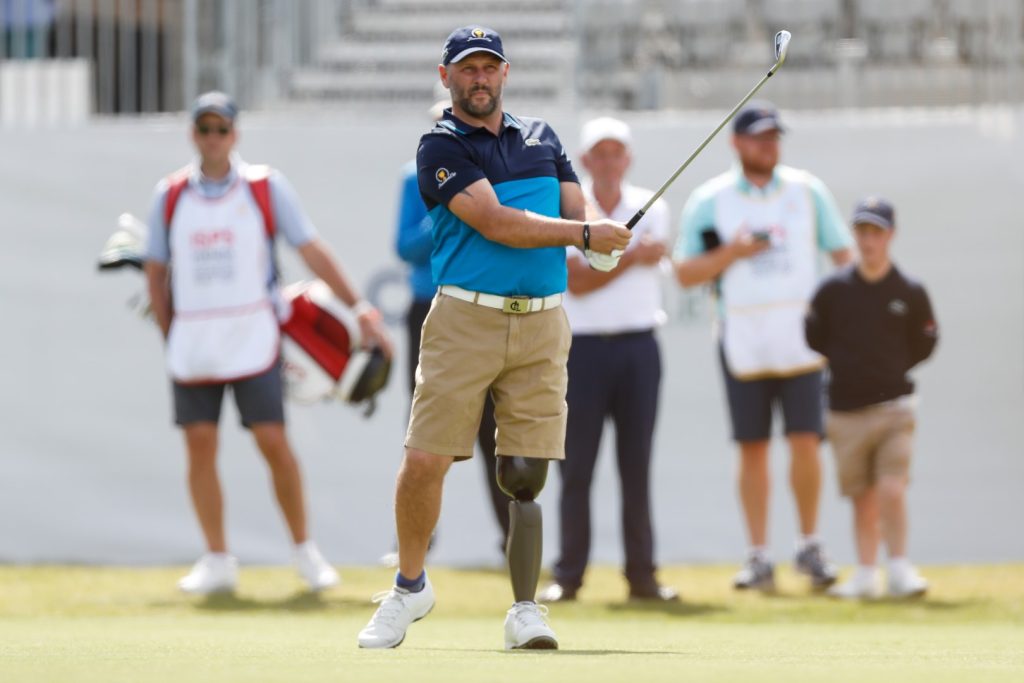
Twenty-two limb salvage operations. Two years in an Ilazarov frame with 52 wires running through his leg. Daily one-millimetre adjustments to stretch his shin bone and former Royal Artillery Gunner Mike Browne calmly says,”In hindsight – luckily it didn’t work.”
Mike is quick to say that his injury was not actually a result of war, “I was training in a place called Longmore in the UK. All I did basically was break my leg. I was on a training exercise and my leg collapsed…if you could imagine a bamboo stick when you crush it from the bottom-up, well it was like that with my leg when I landed. I just thought that was it, you know, I’ll be back in six weeks, not a drama, back in the job doing what I was doing.”
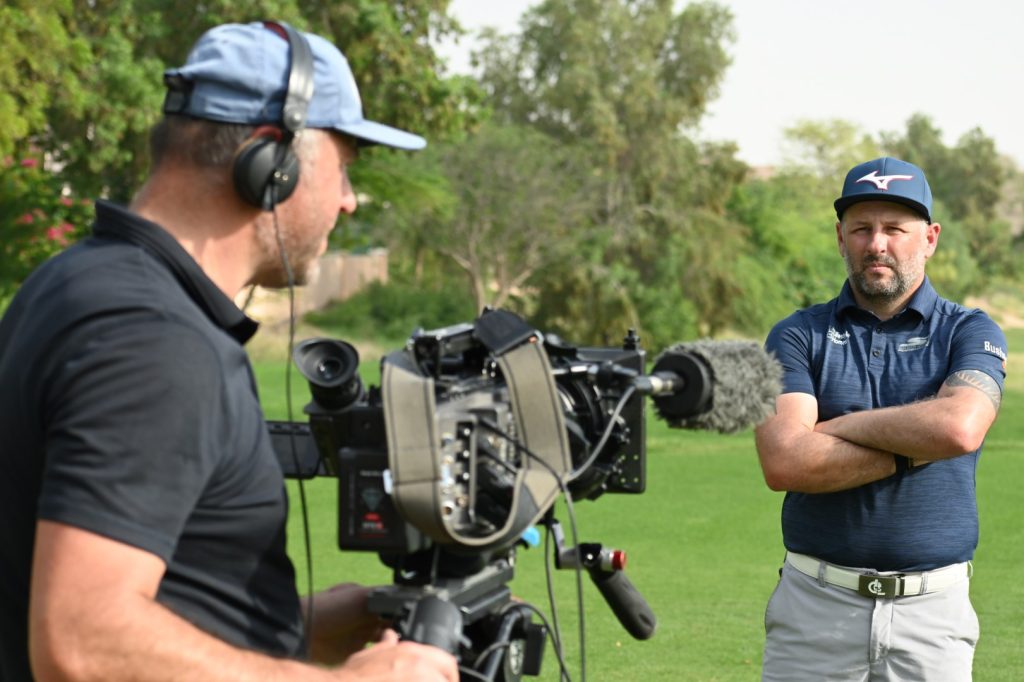
That wasn’t the case, Mike got a bad infection, from either the hospital or the metalwork in his leg. This consumed all the muscles around his knee. “They actually took the knee joint out and tried to fuse my tibia plateau to my femur. So they had to break my shin bone, and stretch it about seven centimetres.”
Life had changed for this man of action. Football and motocross had been part of Mike’s teenage years, competing at the British and European levels, and with a job that demanded physical prowess, the time he was sidelined with what he had thought was a simple injury was hard to take.
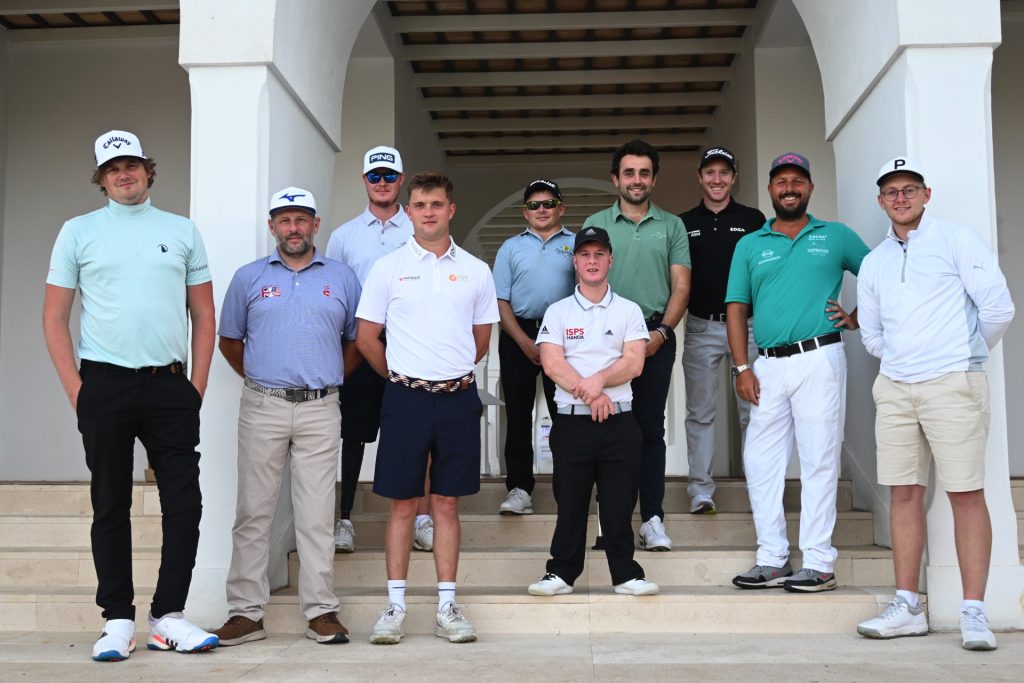
Seven days in May 2013 would prove to be pivotal in Mike’s life. “I sat down with my surgeon on May 1 and said that I was having trouble living like I was. Because I had a straight leg, I couldn’t drive a car…couldn’t go on a plane, couldn’t walk up and down steps, and all those little things add up. I basically made the decision there and then; it was an easy decision…right let’s get rid of it. And then on May 7, my leg was amputated. I woke up, and that was the first time I had no pain. It was amazing.”
Mike was sure that his decision was the right one, “It was probably the biggest decision but the easiest decision I’ve ever made. One day after my operation, I sort of knew that something was wrong, but being a military man, you just put it away and think, oh, I’ll just get over it.” But he didn’t get over it, not initially at least. The two years of constant pain, which Mike describes as a living hell, just built up to the point where he sat down on his bed and just cried. “I’d lost all of my social skills…I’d lost my job, in essence, I’d lost my life really, and so basically I sat down, and I just cried for no reason, for three days non-stop.”
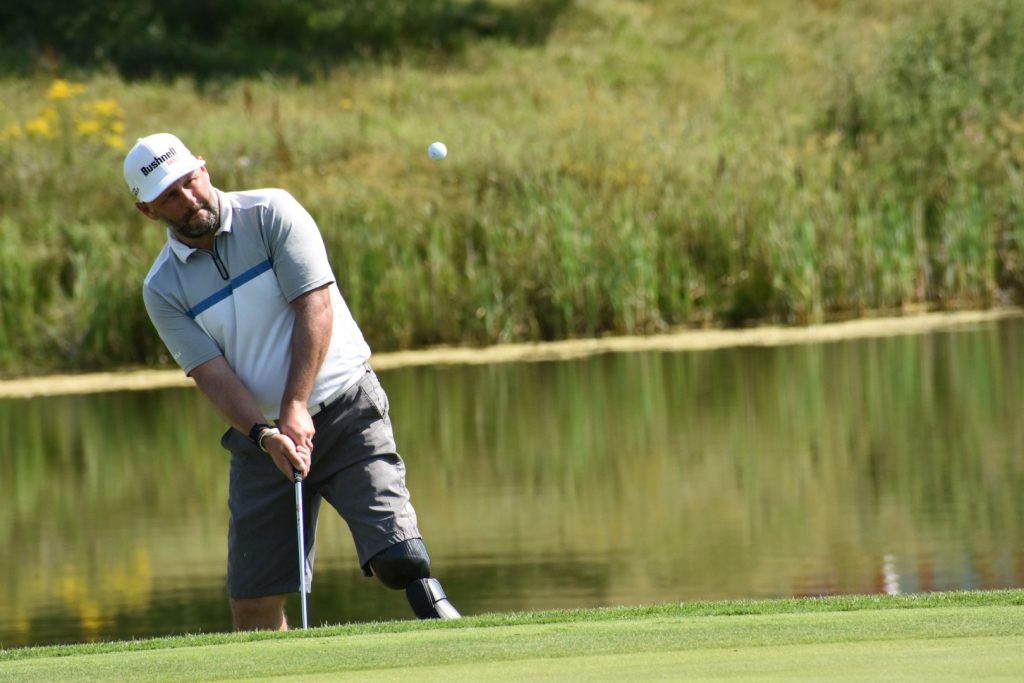
Sometimes one has to hit rock bottom, and that is how Mike saw those dark days. “I thought I needed to get some help, and that’s where my journey sort of began. Luckily, I was still involved with the Headley Court Rehabilitation Centre, and my girlfriend at the time phoned them to explain what was going on. They just took me straight to Tedworth House and sat me down with a psychiatrist so we could just talk it through. The mental health team and I just worked through it. I did three or four sessions and started to get back on the road to recovery, and you know, I started seeing things in a different light, realising that things weren’t that bad. I was actually quite lucky to be where I was.”
The team at Headley Court helped to physically repair Mike, and then the Tedworth House team helped Mike get perspective in his life. Mike is clearly grateful for the people around him, the friends and family that are all too easy to take for granted. He realises that one of the key steps he had to take was accepting what had happened to him. “You have to stop feeling sorry for yourself, there’s a million people out there worse off than you…it’s a big hurdle to get over just to feel accepted, and that’s when you can start to fully rehab. The support of family, friends, and colleagues is invaluable, I don’t think people realise how much you need them when you’re going through a hard time.”
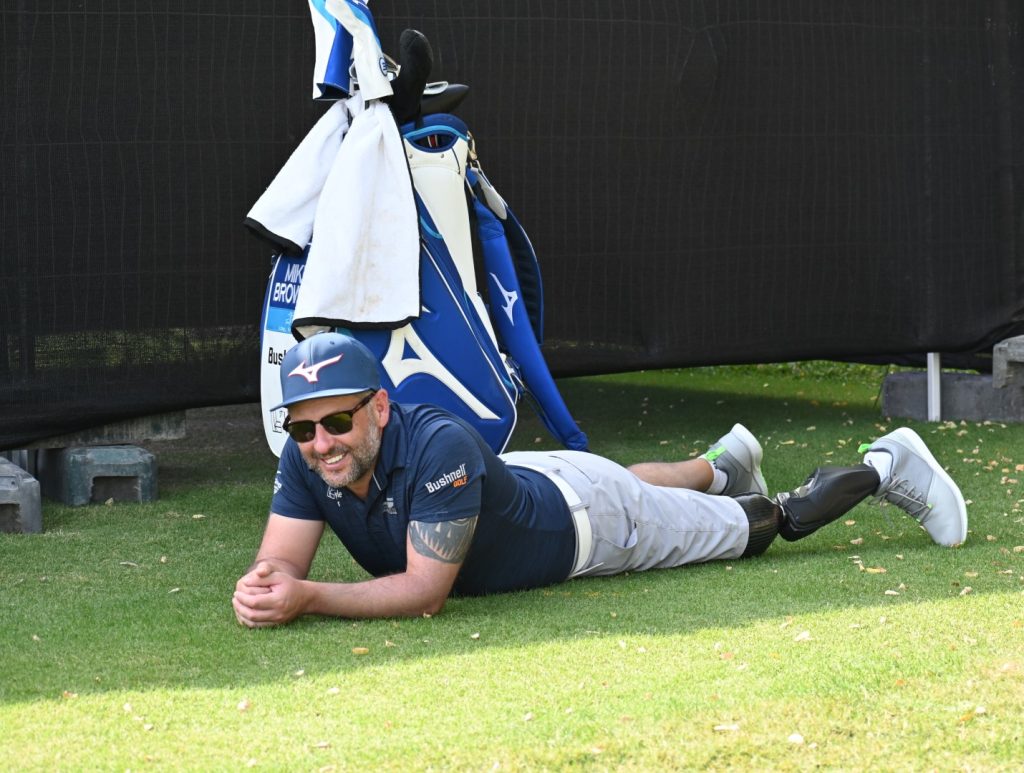
Just as his ‘new life’ began he found golf, “Golf gave me everything that I was missing and gave me a new family, a purpose. It gave me all my social skills back. It gave me confidence, and it just saved my life really.” Mike had found his new sport through the On Course Foundation by seeing a poster at Tedworth House.
Let’s take a reflection moment at this point: what if he hadn’t seen that poster? What if he had been in a dark place and had seen it but its message hadn’t really registered? Well who knows, but Mike grabbed the opportunity to try golf with both hands, “I didn’t know what was going on in my life. I was at a pretty low point, to be honest, and then I saw this poster. I thought I’ll give it a go, why not?
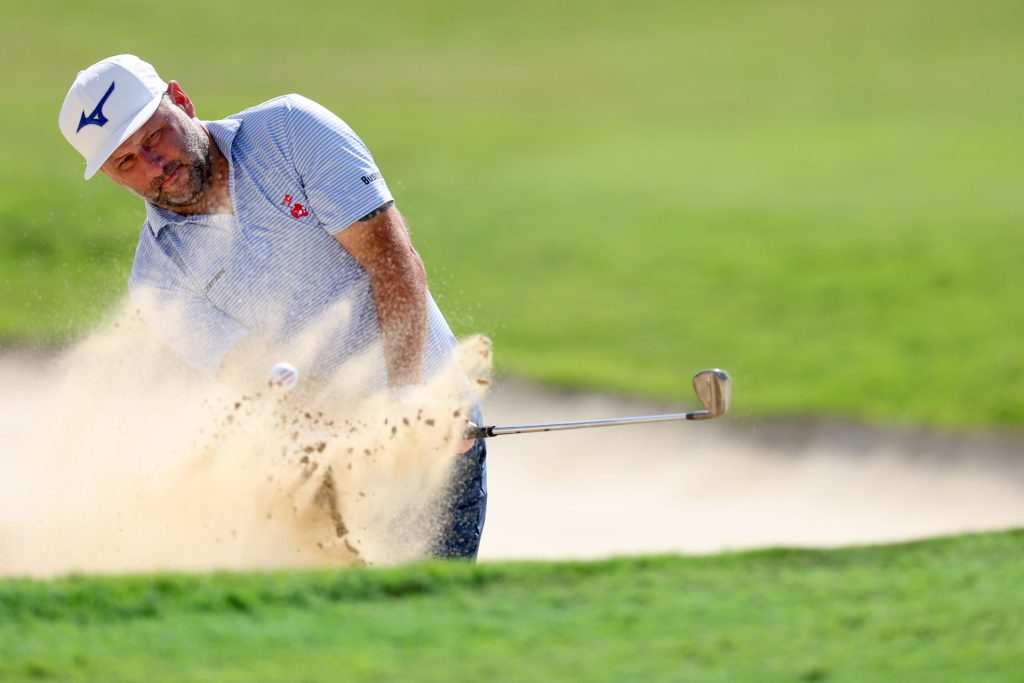
On that first day of sampling golf, Mike missed shot after shot. Then came the moment, the one that most golfers experience at least a few times in their career. The effortless swing perfectly timed that transfers all of one’s available power to the ball, sending it soaring straight down the fairway. The poised and balanced completion of the swing and a picture-perfect pose that would grace the front cover of any leading golf magazine. Or at least that is how it feels. Mike recalls that he had missed 20 or so shots and then, “I hit one, and I can still remember that shot. It only went about 40 yards, but there’s a feeling, you know when you hit a golf ball, and that was the feeling for me. That was me hooked in that very moment. And I thought, you know I can use this as rehab.”
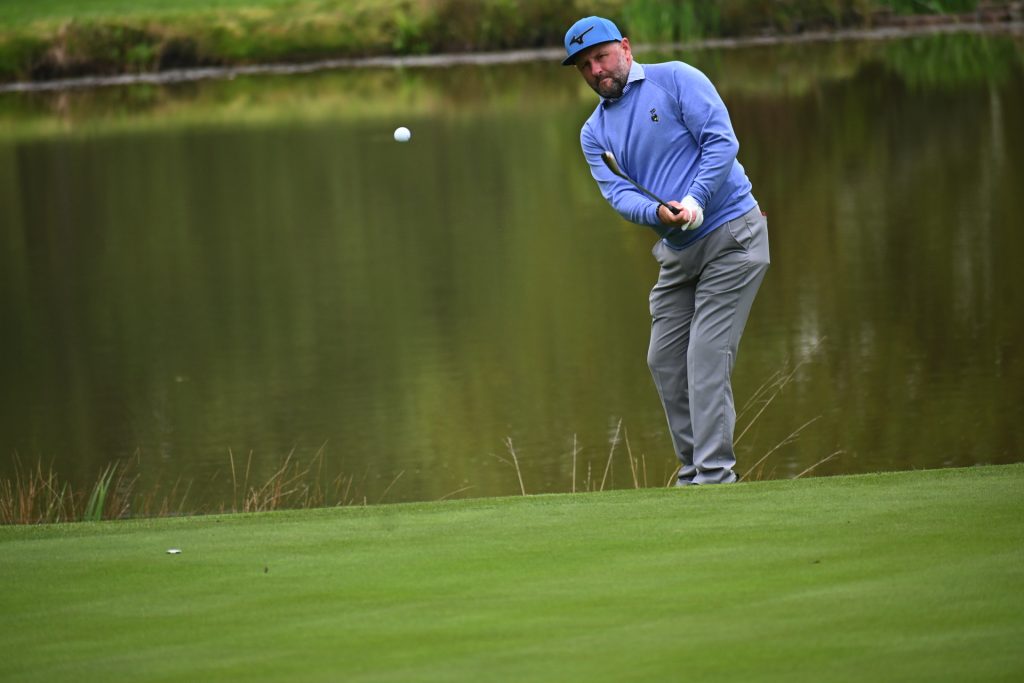
Mike has nothing but praise for both the On Course Foundation and their professionals Di Llewellyn and Alastair Barr, “they’ve taught me from ‘basic basic’, to where I am now. They give you the positives about your swing. They also taught me everything that I need to know about being a professional golfer as well.
Mike’s progress to the professional game has been meteoric by any standard. Starting to play golf in July 2014 and turning professional in September 2016 is not normal, as often it takes years for a player to reach the standard necessary to play professionally. Mike has always strived to be the best that he can be, it’s in his DNA. His competitive nature, formed in motocross as a youngster, honed in the military and expressed in golf. “I just want to be the best I can, and you know, if someone is better than me then fair dues.” His injury and subsequent recovery further sharpened these instincts. Although his athlete’s mentality is expressed in the heat of tournament play, in fact, he is most fiercely competitive with himself. “I think when I got injured, it made me want it more because I wanted to prove to myself and everyone else in the world, that no matter what happens to you, you can make something of it. A lot of people think their life is over when they get injured, but you know, I remember saying that…that life is over, but I’ve got a new one now, so let’s make the most of it.”
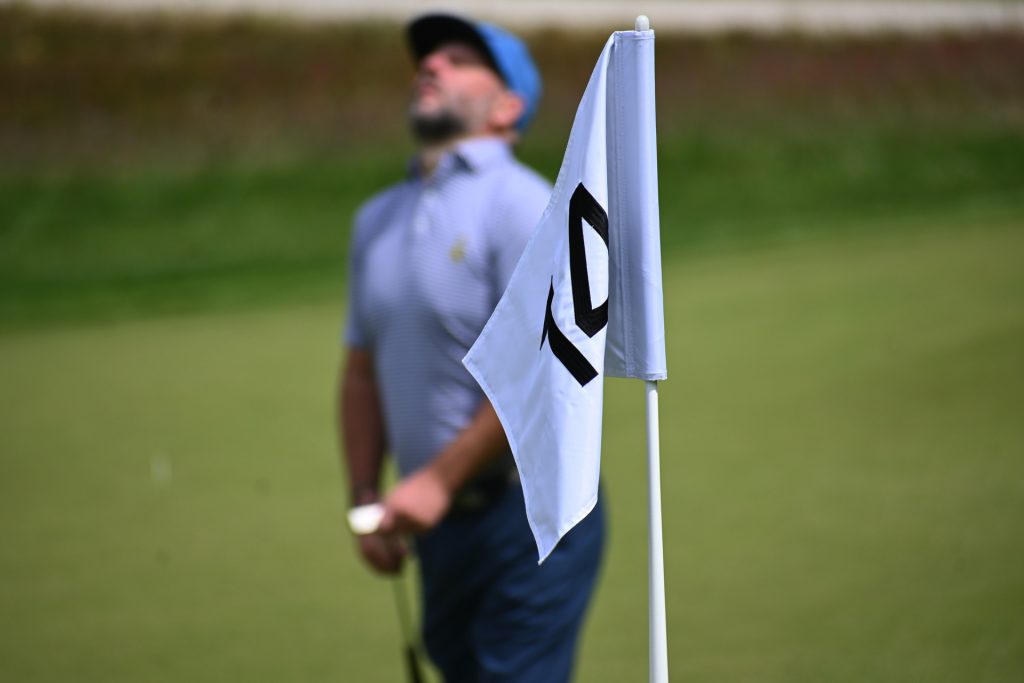
“Golf gave me everything that I was missing. It gave me confidence, and it just saved my life really, maybe not physically, but definitely mentally. I don’t know where I’d be without golf. It’s made me a better person as well, it’s calmed me down, and given me an appreciation for things.”
Mike is making the most of his new life. He has powered his way into the top end of the Gross World Ranking for Golfers with Disability (WR4GD) and has earned his position in several high-profile events, some backed by the European Tour. Mike can now add the EDGA Scottish Open, played alongside the Aberdeen Scottish Open, the EDGA Finale, played together with the DP World Tour Championship, and the AAAC played in conjunction with the Emirates Australian Open, to his list of life experiences. These events are high profile and offer Mike the opportunity to test his skills against other golfers with a disability over tour prepared courses which are not for the faint-hearted. He is just as happy though when contributing to the coaching that is often done alongside these events, or with promotional activities with the On Course Foundation. “I can actually do stuff for them now rather than them doing stuff for me, which is such a great feeling. So I can help others. So yeah, it’s brilliant.”
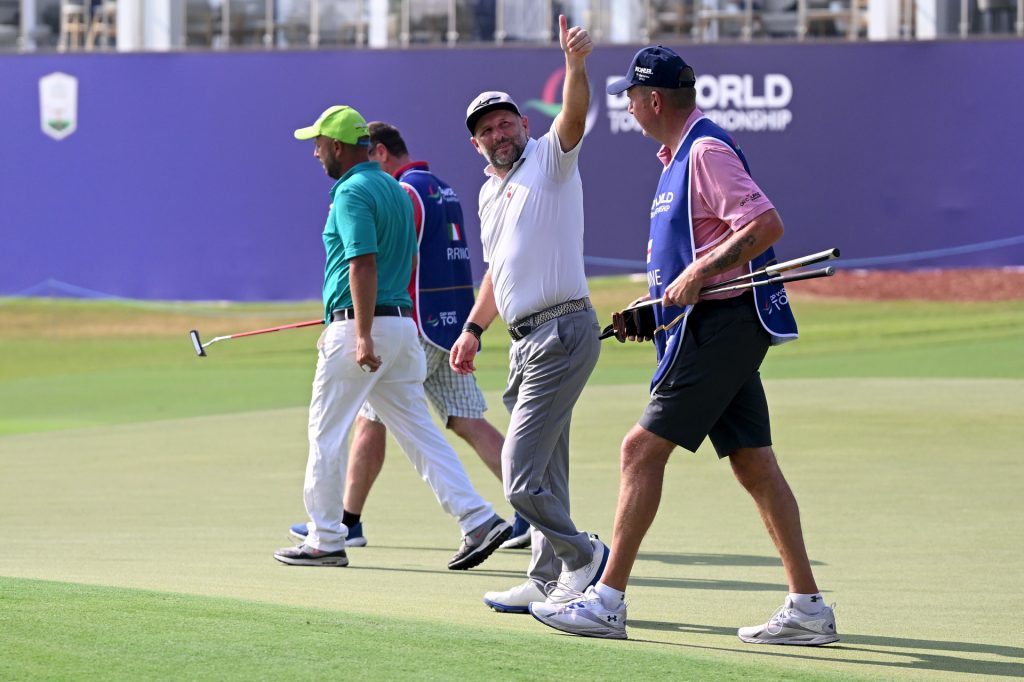
When asked what advice he would have for someone who found themselves in a similar position, Mike answers without hesitation. “It does get better. At the time, it’s not a nice feeling to have, but it does get better. There are people out there that can help you. I wasn’t told that it’s going to be okay, but that I was still going to have a great life. So you must know, your life is never over, it just changed, you know, so make the most of it, make what you can, and it’s going to be okay.”
Mike in his own words.
Was it Brother-in-law Tony that got you involved in golf in the first place?
You mentioned you hit rock-bottom, how did you go about building your new life?
On striving to make the most of life.
You mentioned that you saw a poster?
Contact EDGA
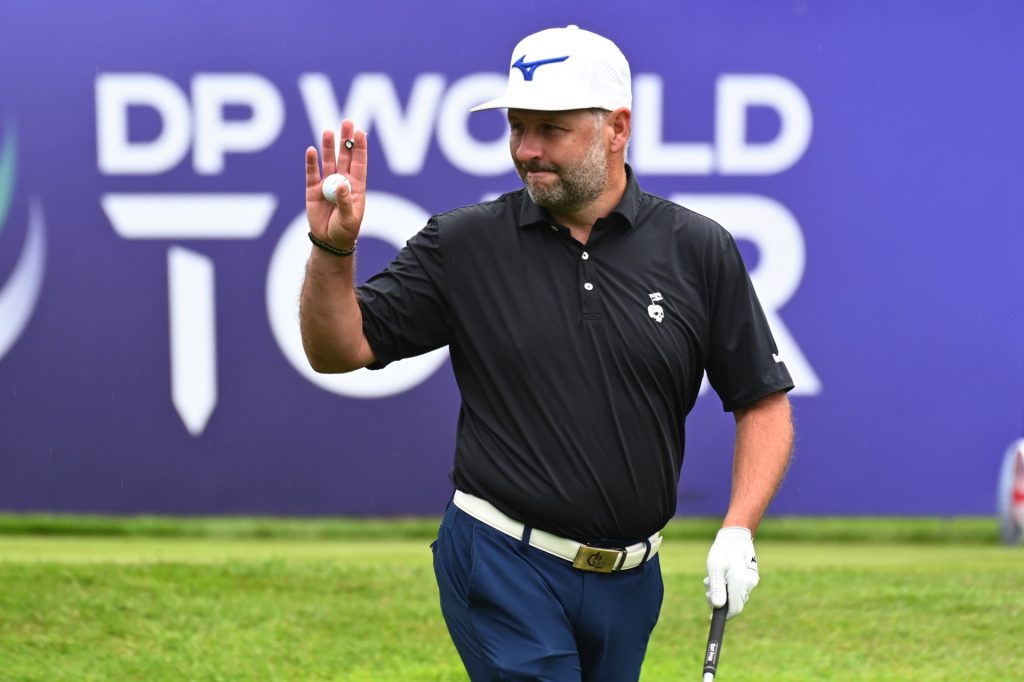
NB: When using any EDGA media, please comply with our copyright conditions


